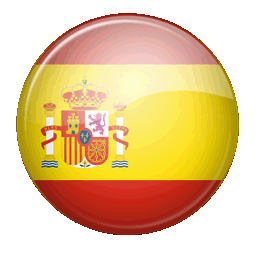What is Thyroid Carcinoma?
The thyroid gland is important for producing hormones. Thyroid Carcinoma is a cancer of the thyroid gland cells, which is very rare in children. There are 2 different types of thyroid carcinoma (papillary or follicular) and most of them are well-differentiated in children. Extremely rarely another type, medullary thyroid carcinoma, can occur.
Who gets Thyroid Carcinoma and why?
Thyroid carcinoma affects mainly adults, between 35 and 65 years, more frequently women. Inpediatric age, most cases occur in young teenagers and it is generally a random event, with no known underlying cause. Rarely, the incidence of thyroid carcinoma may be increased in some families. This applies especially to the medullary carcinoma cases, which may be a part of a genetic disorder called multiple endocrine neoplasia type 2 (MEN2). A minority of papillary and follicular carcinomas can be related to a DICER1 mutation which can cause various rare cancers.
Is there a risk for brothers/sisters to develop the same cancer or other types of cancer?
Not usually, except for the extremely rare cases of medullary carcinoma of the thyroid, constituting a part of MEN2 syndrome or in case of family DICER1 mutation.
What are the typical symptoms and signs of thyroid carcinoma?
In most children, thyroid carcinoma develops very slowly. The most common symptom is a painless lump in the neck that gradually gets bigger. Other symptoms include: a hoarse voice, for no obvious reason, that doesn’t go away after a few weeks; difficulty swallowing – this can be caused by a thyroid tumor pressing on the gullet (oesophagus); difficulty breathing – this can be caused by a thyroid tumor pressing on the windpipe (trachea). Sometimes, the first sign of thyroid carcinoma is an enlarged neck lymph node.
Which investigations are necessary for a child with Thyroid Carcinoma?
The diagnosis of thyroid carcinoma is based on the pathological assessment of the tumor cells of the thyroid gland obtained by fine needle aspiration. The biopsy is preceded by ultrasound examination of the thyroid gland and the neck lymph nodes. Also, several laboratory tests, including the levels of hormones maybe of value. Measurement of calcitonin is necessary to exclude the presence of medullary thyroid cancer.
After being diagnosed with thyroid carcinoma, your child may need further tests to check the size and location of the cancer and whether it has spread to other parts of the body. These tests may include:
- MRI (magnetic resonance imaging) scan – this uses magnetism to build up a picture of your body
- CT (computerized tomography) scan – this uses x-rays to build up a three-dimensional picture of the inside of your body
- PET/CT (positron emission tomography) scan– this uses low-dose radiation to identify areas of cancer.
Are there different stages of the disease?
Most thyroid cancers are limited to the thyroid gland; however, it can be present in the lymph nodes in the neck and very rarely in the lung. The latter is usually at a very late stage of disease.
What is the treatment for Thyroid Carcinoma?
Surgery to the thyroid gland
After pathological diagnosis of thyroid carcinoma has been established, the removal of the part (hemithyroidectomy or lobectomy) or the whole thyroid gland (total thyroidectomy) together with the tumor is necessary.
Surgery to the lymph nodes
Your surgeon may decide to remove the lymph nodes in the front, or front and side of the neck. This is done to:
- remove cancerous lymph nodes
- reduce the risk of the cancer recurrence.
Radiotherapy
Radiotherapy to treat the thyroid cancer is usually given as a radioactive iodine (a radioactive substance given to your child orally, as a drink). Cancer cells absorb more radioactive iodine than normal cells, and the cancer cells die. Your child may have this treatment after the operation. Before treatment starts:
- Your child will be asked to eat a low-iodine diet. Your health professional will give you information about this.
- Your child may be asked to stop taking thyroid replacement hormones to allow the iodine to work.
- Iodine is radioactive so your child will have to stay in hospital, in a single room, for a few days until the radioactivity leaves your child’s body. Safety measures will be in place. Your doctor will talk to you about any safety measures you may need to be continued for a few days at home
What are the results of treatment?
The results of treatment of thyroid carcinoma are generally excellent and most children and young people are cured after completing the first-line treatment. After therapy, your child will have to take thyroid hormones for the rest of his life.
What research is carried out for Thyroid Carcinoma?
This is mainly happening in adult patients with Thyroid Carcinoma, and involves testing new drugs which target the thyroid cancer specifically, after standard treatment has failed. This rarely needs to be considered in children with Thyroid Carcinoma as their results are so good.
What is EXPeRT doing for children with Thyroid Carcinoma?
The EXPeRT group is working for children with Thyroid Carcinoma in many ways:
- Collecting data of children with Thyroid Carcinoma from all European countries
- Creating guidelines for diagnosis and treatment with the goal to optimize the chance of cure
- Providing advice in difficult cases to the responsible clinicians both at a European level and worldwide
- Collaborating with other Groups of experts and researchers to increase the knowledge on Thyroid Carcinoma





